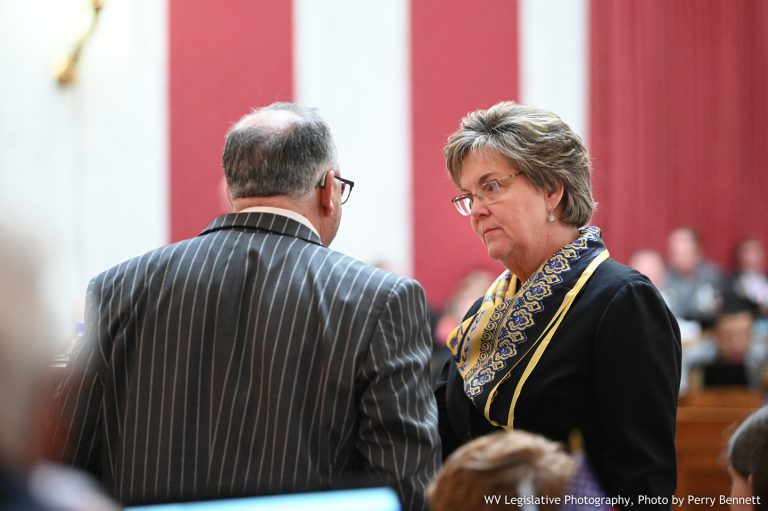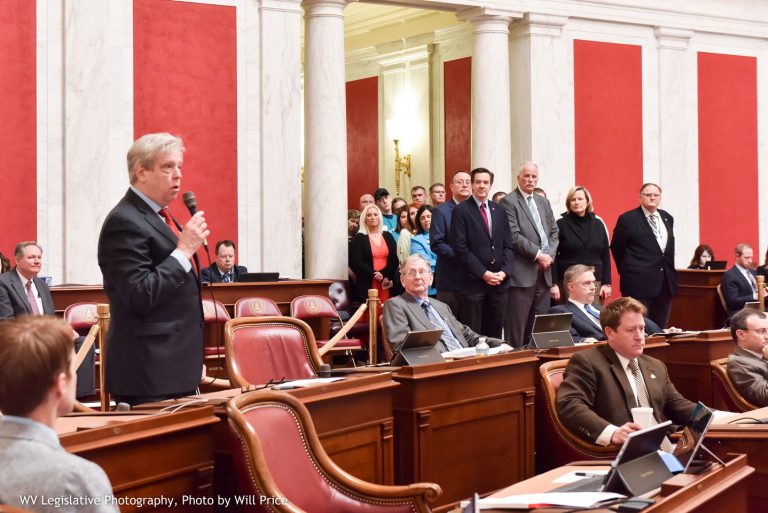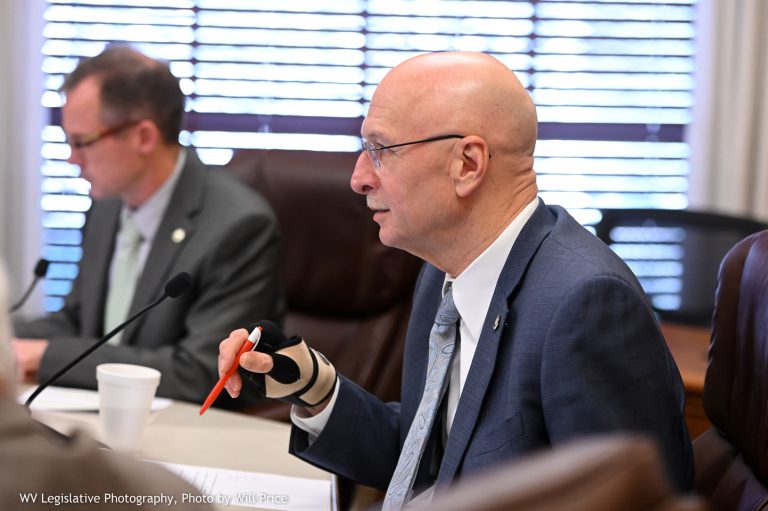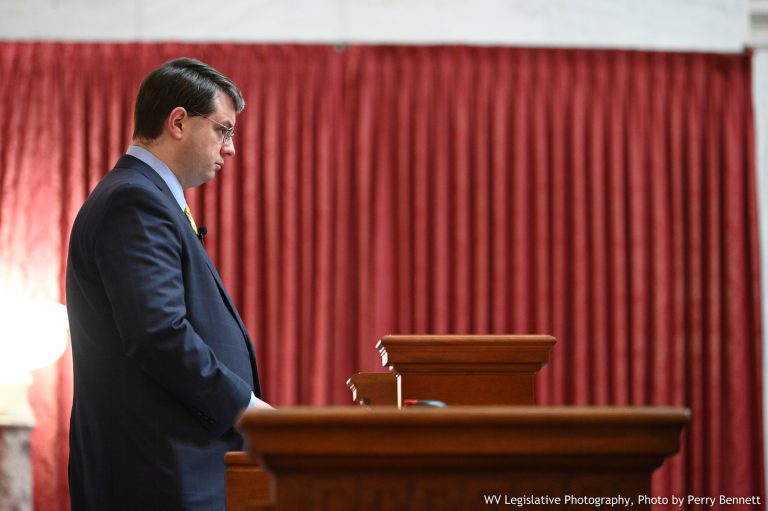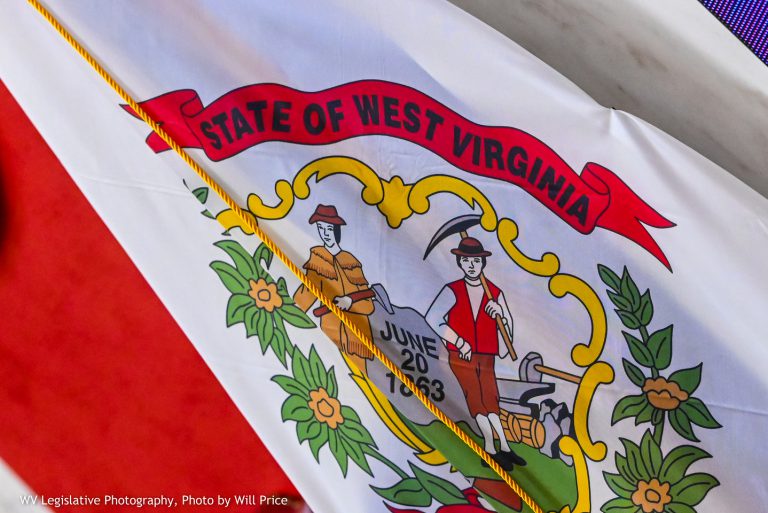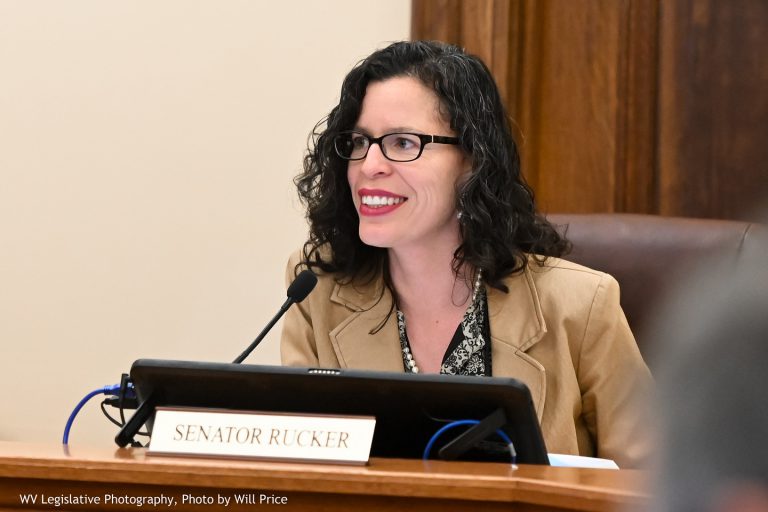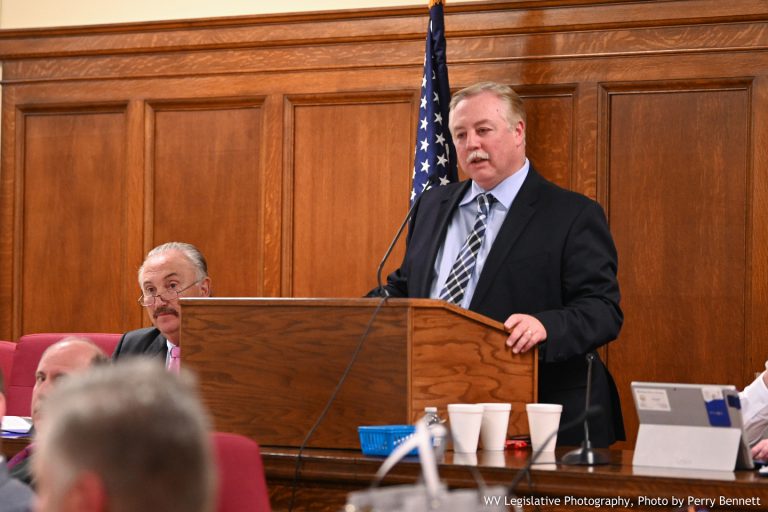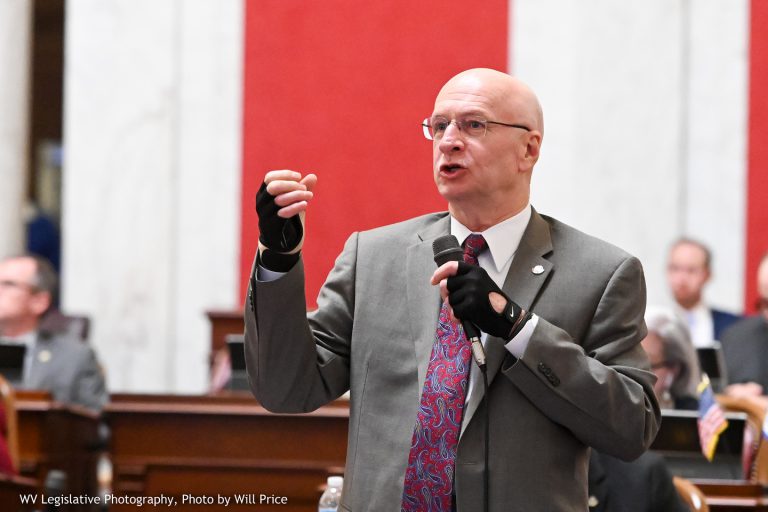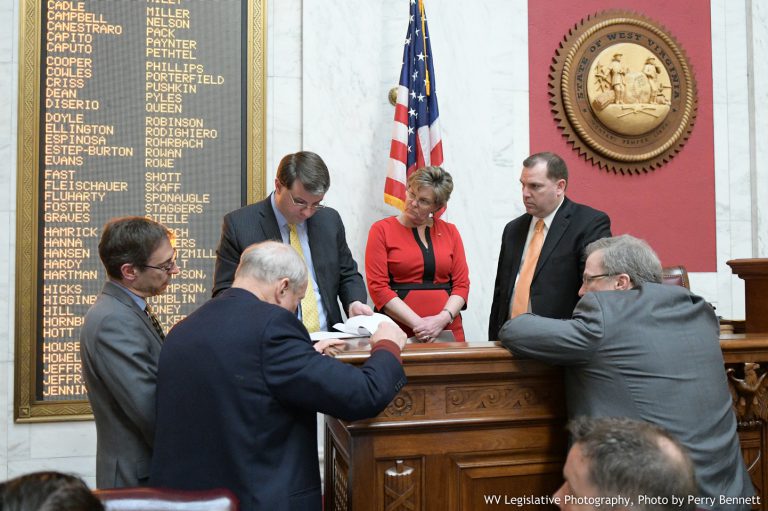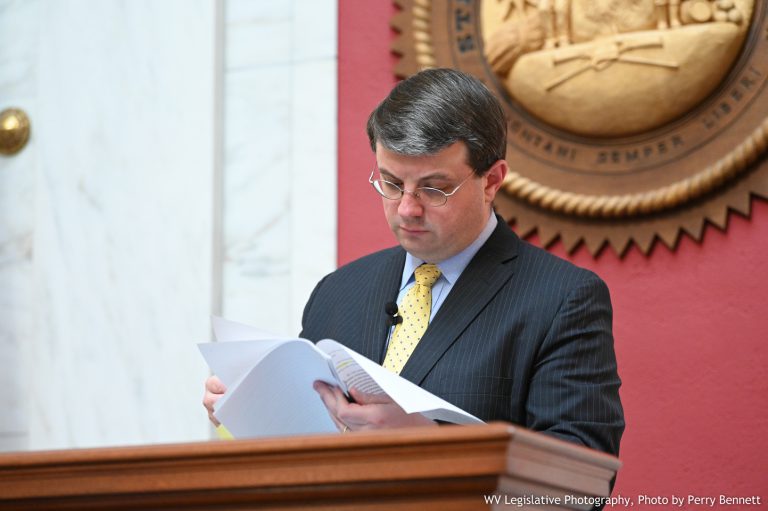The House Finance Committee considered Senate Bill 275, a bill that would establish an Intermediate Court of Appeals, in committee on Monday.
Senate Bill 275 creates an Intermediate Court of Appeals, which is a court meant to add an extra step for appeals between the county circuit courts and the Supreme Court of Appeals. The Intermediate Court of Appeals would handle a variety of civil cases and would not handle any criminal cases. This would eliminate the Office of Judges and would place their duties under Board of Review hearing examiners.
The Intermediate Court would have two districts, one in the northern part of the state and one in the southern. A tentative map was drawn up to show the jurisdiction of each district. This map was drawn based on population, but it also attempts to keep circuit courts intact to make the appeals process easier. Each district would have three elected judges.
One of the five fiscal notes presented to the committee estimated the initial cost of the court to be $7.6 million, and $6.4 million annually after the first year. The actual cost of the court was unclear to the committee because of the range presented in the fiscal notes. An updated fiscal note was requested before Senate Bill 275 reaches third reading in the House.
Those supporting this bill argue that this court is needed to take the burden off the state Supreme Court. Although the number of appeals has declined in recent years, Senator Charles Trump IV, R-Morgan, told the committee he believed this is not an accurate representation of the full business done in the Supreme Court.
“By measure of decisions rendered, our Supreme Court is much busier now than it was in 2009,” Trump told delegates in an earlier House Judiciary Committee meeting.
Vice chairman of the House Finance Committee, Delegate Vernon Criss, R- Wood, supported this bill on the basis that it would strengthen the state’s judicial system.
“We should spend money to have proper organization of our court systems,” he said. “We need to give serious consideration to an Intermediate Court of Appeals. This is a good way to accomplish justice.”
Those opposing this bill said they believed the court is an unnecessary expense that would be better used for other parts of the state budget.
The House budget for 2020 was advanced out of committee last week. Delegate Jason Barrett, D- Berkeley, said, “I did not see $8 million allocated in our budget for a court of appeals. What I did see in the budget was $16.9 million for foster care, $19 million to eliminate the I/DD Waiver, and $16 million to fund Medicaid.”
Additionally, some delegates argued that creating this layer to the court system would actually delay cases instead of speeding them up, due to the nature of civil cases.
Delegate Isaac Sponaugle, D- Pendleton, opposed this bill for that reason.
“We have this shiny object that is trying to bring investments into the state, but it’s going to cost a lot of money and it’s going to delay our justice system,” he said. “It’s not going to provide better justice for our citizens.”
An amendment offered by the House Judiciary Committee, and later adopted by the Finance Committee, provided a permanent location for the northern and southern courts in Clarksburg and Beckley, respectively.
Delegate Jim Butler, R-Mason, offered several amendments in Finance to change the location of the southern court. He proposed to locate the court in Spencer, Hurricane and Point Pleasant. All these amendments were rejected.
The Senate has proposed and passed similar legislation the past three years, but it has never been reported to the full House.
House Finance advanced the bill to the full House. Senate Bill 275 was read a first time Tuesday and is now on second reading.


